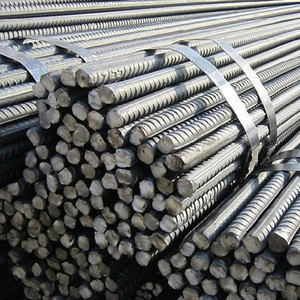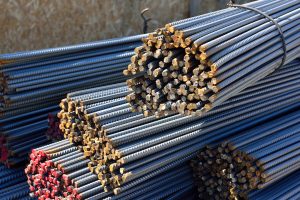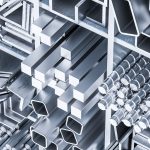steel slab bar rebar
The global iron and steel sector will benefit from construction and transportation. A rapid increase in iron and steel is expected in Asia-Pacific, Central, and South America. Steel is made from iron ore. Manganese, nickel, titanium, chromium, molybdenum, and vanadium are all present in it. Other metals give steel its distinctive properties. Hematite, limonite, magnetite, goethite, and siderite are important ores. Magnetite and hematite are examples of iron-rich ores. Cast, wrought, and pig iron is all made of carbon. Pig iron already rules and will do so once more. Government infrastructure spending, particularly in developing economies, could spur business expansion. The three main end-use sectors of the market are automotive, construction, and transportation.
In Brazil, China, Russia, and India, rising incomes, urbanization, and population have increased the demand for automobiles. This tendency ought to benefit the local market.

The economy of North America has recovered since the global recession. The economy of Europe should be helped by government action. Regional marketplaces could benefit from this. Laws were passed in response to environmental concerns over excessive mining. In order to reduce mining in developing markets like China, the world’s top steel consumer, steel corporations must limit output. The restricted framework may suffocate local and international markets for iron and steel. Demand in China has increased. Some market participants have expanded their production capabilities. Prices have decreased due to ongoing overcapacity brought on by rapid industrial capacity increase. Since China is both the world’s greatest buyer and producer of steel, its market trends are international.
Spending on infrastructure and industry has decreased due to the global recession. Even though the economy is getting better, end-use industries might take longer to recover.
Recovery of scrap iron has been encouraged by the knowledge of mining’s negative effects. Mining is more expensive than recycling. The scrap sector has grown as a result of evolving consumer needs and improved comprehension. Variable scrap pricing will be beneficial to the economy.
steel slab bar
Steel bar is a crucial component of many building projects, including the construction of dams, bridges, reservoirs, aqueducts, low- and high-rise buildings, as well as numerous commercial and industrial uses. It will provide the construction with adequate strength. To resist the load placed on the structure, it is inserted in concrete fiber.
A steel bar is provided in the form of slab beams and columns for the construction of residential buildings. The column of the concrete structure acts as a compressive member, whereas the slab and the beam both function as flexural members. In order for concrete to withstand tensional stresses, it is strengthened with steel bars.
Steel comes in a wide variety of sizes and diameters that are utilized in the building industry. Some of these sizes and diameters include 6mm, 8mm, 10mm, 12mm, 16mm, 20mm, 25mm, 32mm, 40mm, 45mm, and 50mm. Steel in larger sizes and diameters, such as 60mm, 75mm, 90mm, and 100mm, can also be made to order and sold by a variety of companies that specialize in the production of steel. Other types of steel bars with a thickness of 5 millimeters are also available, but they are not utilized for structural work because they are too thin and have the appearance of pencils. According to the design structure, the span between the column and the weight operating on it, various sizes and diameters of steel bars are employed in building structures like columns, beams, and slabs. However, in general, steel bars with diameters of 8 mm, 10 mm, and 12 mm are used in slabs, while bars with diameters of 12 mm, 16 mm, 20 mm, and 25 mm are used for columns and beams. Larger steel bars with diameters of 32 mm, 40 mm, 45 mm, and 50 mm are used for hydraulic structures like dams, bridges, reservoirs, and aqueducts.
steel slab rebar
Reinforcing bars and wire reinforcement made of steel will not prevent cracking. Up until the concrete starts to crumble, reinforcement is essentially inactive. After cracking, it turns active and limits crack propagation to control crack widths.

In general, reinforcement is not required if slabs are set on high-quality subbases with uniform support, made of low-shrinkage concrete, and have joints that are properly installed with spacings of 15 feet or less. There won’t be many random or out-of-joint cracks, most certainly. Because of the constrained joint spacing and low concrete shrinkage, any cracks that do form should remain relatively tight, preventing further serviceability or maintenance problems.
Slabs that are constructed on unstable subbases that run the risk of providing non-uniform support include concrete that shrinks moderately to severely, or has joint spacings that are greater than 15 feet apart and are required to have reinforcement installed in the event that cracks appear on the surface of the slab. This will help to narrow the cracks to a more manageable width. As fracture widths expand and get closer to 35 mils (0.035 inches), the effectiveness of load transfer through aggregate interlock decreases. This might be accompanied by slab “rocking” or differential vertical movements across cracks. Edge spalling and exposed crack edges are likely to occur if the slab is subjected to wheeled activity, particularly in hard-wheeled lift trucks. These issues are likely to arise if the slab is exposed. As soon as spalling starts happening, the slab’s deterioration along cracks accelerates significantly, and the crack widths at the surface continue to grow.
When contraction joints are not acceptable and are not placed, strengthening against shrinkage and temperature is needed. This method of design, also known as continuously reinforced or joint-less slabs, enables the occurrence of multiple, widely spaced (3 to 6 feet), fine cracks across the slab.
steel slab billet bloom
In a steel mill, semi-finished casting products are intermediate castings that require additional processing before being sold as finished goods. There are four different kinds: slabs, billets, blooms, and ingots.
Large rough castings called ingots are made for storage and shipping. Typically, the form is square or rectangle-shaped with wide fillets. The big end is typically pointing downward as they taper. Before being transformed into wrought iron, slag-ridden iron castings known as blooms were poured in a bloomery during the commercial wrought iron era. Blooms are intermediate-stage pieces of steel created in the era of commercial steel by the first pass of rolling (in a blooming mill) that reduces the ingots to a lower cross-sectional area, but still bigger than 36 in2 (230 cm2). Typically, rotary piercing, structural shape rolling, and profile rolling are used to further treat blooms. Structure-related shapes, rails, rods, and seamless pipes are typical end products.
A length of metal with a square or round cross-section and an area smaller than 36 in2 is referred to as a billet (230 cm2). Billets can be produced immediately through continuous casting, extrusion, or hot rolling an ingot or bloom. The subsequent processing of billets involves profile rolling and drawing. The finished goods include wire and bar stock.
Centrifugal casting creates short circular tubes as billets for precise metallurgy. Inner and outer diameters ground to length are used as cylinder sleeves. Because of their size, they aren’t always considered semi-finished castings.
A billet is a unit of pure copper used in the manufacturing of copper that is 30 feet (9.1 m) long and 8 inches (200 mm) in diameter.

A slab is rectangular-sectioned metal. Indirect continuous rolling on a slabbing machine generates the slab. Pipe rolling, flat rolling, and skelping are used to process slabs. Typical completed commodities are metal sheets, plates, strips, pipes, and tubes. Slabs are made in a blast furnace. BF slab is preferred for good quality.
steel slab grinding machine
A grinding machine, more usually called simply a grinder, is a power tool (or machine tool) that is used for grinding slabs. An abrasive wheel is used as the primary cutting tool in this particular type of machining. Each abrasive grain on the surface of the wheel will remove a very small chip from the slab being worked on as a result of shear deformation.
Workpieces that require excellent surface quality and high accuracy of shape and dimension are finished with grinding. Since grinding has a dimension precision of around 0.000025 mm, it often serves as a finishing operation and removes only a little amount of metal—roughly 0.25 to 0.50 mm deep. However, in some roughing applications, grinding quickly removes large amounts of metal. Thus, the field of grinding is diverse.
A bed with a fixture to hold and guide the workpiece and a power-driven grinding wheel revolving at the necessary speed make up the grinding machine. The diameter of the wheel and the manufacturer’s rating influence the speed. The workpiece may be moved while the grinding head remains stationary or the grinding head may move across a fixed workpiece.
Using a vernier calibrated hand wheel or the capabilities of numerical controls, the position of the grinding head or table can be controlled to a fine degree.
Grinding machines abrasively remove material from the workpiece, which can produce a lot of heat. Grinding machines use a coolant to cool the workpiece so that it does not overheat and go outside of its tolerance. The machinist also benefits from the coolant because the heat produced may result in burns. The final grinding stages in high-precision grinding machines are typically configured to remove about 200 nm per pass; this produces so little heat that even in the absence of coolant, the temperature rise is minimal.
The materials that were used to build our world also play a crucial part in the evolution of the globe. As the most successful mining and steel company in the world, we have a very clear financial stake in this matter as well as a direct responsibility for it.
Steel will continue to be crucial to the growth of our world in the coming years. It will be essential in developing the circular economy of the future because it is one of the few materials that can be entirely recycled and reused. Steel will continue to advance, becoming more intelligent and environmentally friendly.

Our organization wants to use more intelligent steel to help create a better world. Steels are created using modern techniques that are more effective, consume less energy, and emit considerably less carbon. Steels that are stronger, cleaner, and can be reused. In order to support civilizations as they expand throughout this century, steel for electric vehicles and infrastructure for renewable energy sources will be needed.
Our company promotes innovation by making research and development the foundation of all corporate activities. Because we provide our engineers the chance to work on the most difficult challenges, we are able to attract and retain some of the most talented and astute workers in the business.
We never believe in the boundaries of what is possible with our resources because we are driven by an entrepreneurial spirit and a passion for perfection. Whether it is through creating new technologies to lessen the carbon footprint of steel, introducing cutting-edge construction methods, or implementing extremely sophisticated automation across all of our business activities, we will keep pushing the limits of what is practical. To become the steel company of the future, this is what is required.
You can contact us to buy and sell this product:
Sales consultant: Ms. Leila Nematzadeh
Ways of communication: Phone number: 02147623014
Phone number: 02147623014
 Phone number: 04133660491
Phone number: 04133660491
 Phone number: 09120169267
Phone number: 09120169267
 WhatsApp Response (Skype): click
WhatsApp Response (Skype): click
 Instagram: simurgh_steel_company@
Instagram: simurgh_steel_company@
 email: info@simurghsteelco.com
email: info@simurghsteelco.com
 email: ironore110@gmail.com
email: ironore110@gmail.com
 Facebook: ironore110@
Facebook: ironore110@
 LinkedIn: simurgh-iron-and-steel-company-a68295180@
LinkedIn: simurgh-iron-and-steel-company-a68295180@
 twitter: CoSimurgh@
twitter: CoSimurgh@

 Call number:
Call number:  Whats app:
Whats app:  Address: Salimi industrial Park, Tabriz, IRI
Address: Salimi industrial Park, Tabriz, IRI Instagram:
Instagram:  email:
email:  Facebook:
Facebook: 








